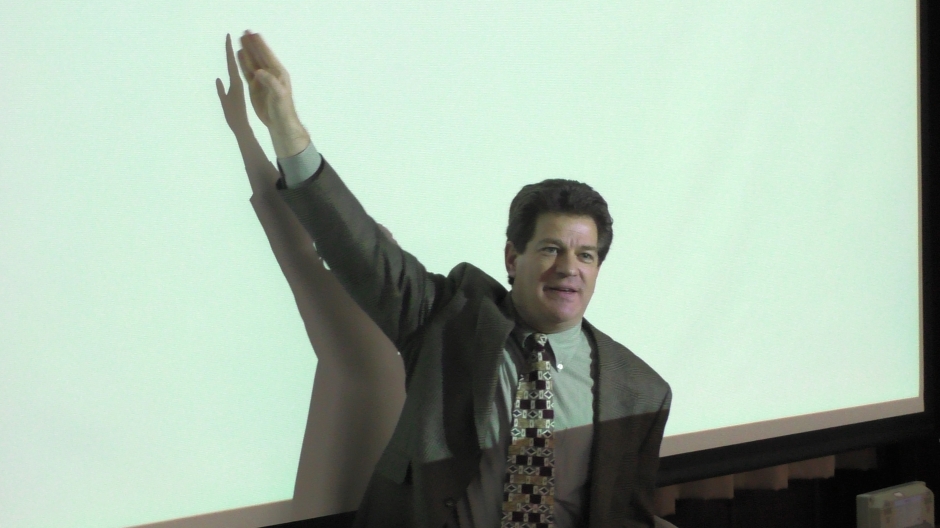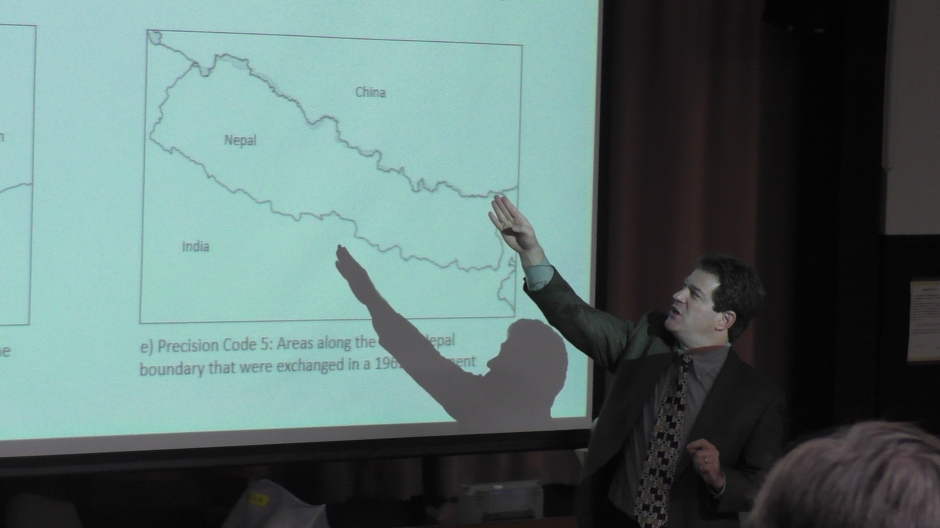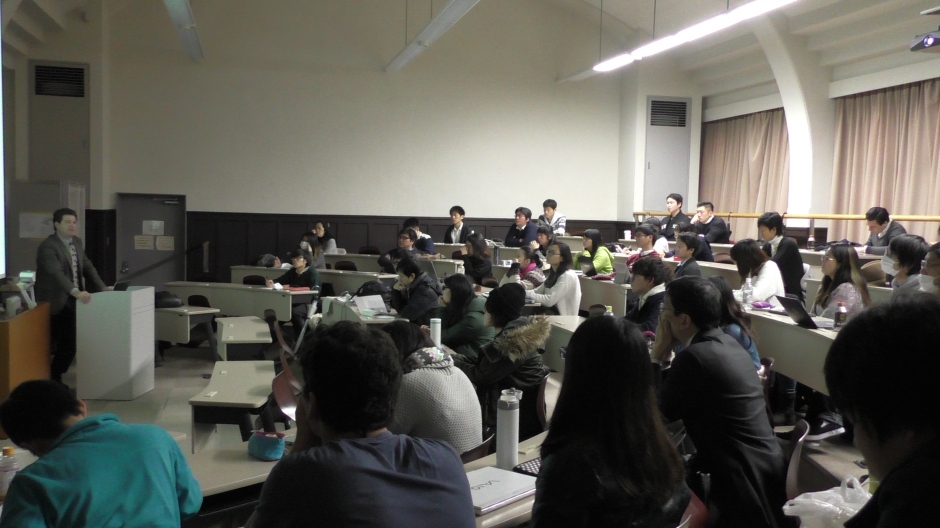- News
- 【TGU Empirical Analyses of Political Economy】 Special Lecture : Professor Kenneth Schultz, Stanford University
【TGU Empirical Analyses of Political Economy】 Special Lecture : Professor Kenneth Schultz, Stanford University

- Posted
- Mon, 15 Feb 2016
Special Lecture by Kenneth Schultz Monday, January 18, 2016
The Center for Positive Political Economy hosted a lecture by Professor Kenneth Schultz from Stanford University on Monday, January 18, 2016. Professor Schultz is a leading scholar in the field of international security, he is known especially for his work on the domestic politics of international conflict. He has received the prestigious Karl Deutsch Award in 2003. While a snow storm hit Tokyo in the morning, preventing many from making their way to Waseda, the auditorium was filled with both graduate and undergraduate students as well as faculty members.
Professor Schultz’s lecture, titled “Territorial Disputes and What It Tells Us about Government Preferences,” answers the perennial question of whether a small territorial concession today would lead to a greater territorial demand tomorrow. Empirical evidence demonstrates that a challenger in a territorial dispute tends not to demand the whole territory of its target state. Professor Schultz notes that this empirical pattern itself presents us with a puzzle—it is not clear if this evidence indicates that the challenger genuinely has only limited aims or that the challenger misrepresents its more ambitious unlimited aims, seeking further concessions. Professor Schultz presents a game-theoretic model to solve this problem, showing that limited aims in a territorial conflict reflect a challenger’s attempt to lend the credibility to its demand.
At this lecture, Professor Schultz utilized Google Earth and geocoded dataset of territorial disputes to visualize where and how large those contested territories are and how they shifted territorial boundaries. It was fascinating to witness how the cutting-edge research is being done by the very best scholar. This lecture confirmed my own passion for the scientific approach to the study of international politics.
Followed by his lecture, we had a conversation session with Professor Schultz over lunch. The students had an opportunity to discuss with him on his lecture as well as research that he carried out. It was a precious opportunity for students at a Japanese university to talk with a top scholar.
Professor Schultz also visited undergraduate research seminar supervised by Professor Shuhei Kurizaki on Friday, January 15. Three students presented their research for the senior thesis. Ryosuke Nishi from the Global Political Economy department presented his game-theoretic analysis of how defensive alliance affects crisis diplomacy. Yana Otlan from the political science department also presented game-theoretic model to analyze the strategic role of inhabitants in the dynamics of territorial disputes. Mitsufumi Kikyotani from the economics department presented quantitative analysis on the effect of political institutions on battle effectiveness. Professor Schultz was very impressed by their research as well as their very-well organized presentations. Not only the three presenters but also other seminar participants benefited tremendously from his feedback.
- Tags
- Student







